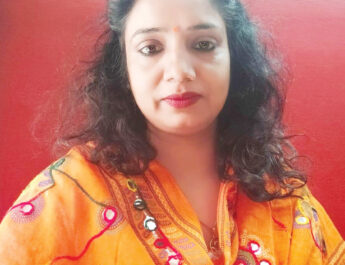From Our Bureau
NEW DELHI: Once again on Monday, the Supreme Court refused an urgent hearing against the practice of Talaq-e-Haasan, allowing a man to divorce his wife by pronouncing “talaq” once a month for three months.
A vacation Bench of Justices Ajay Rastogi and B V Nagarathna asked the petitioner to mention the latter before the Registrar to get a day for hearing.
Senior advocate Pinky Anand, appearing for petitioner journalist Benazeer Heena, pleaded an urgent hearing since two notices have been already sent by a husband for Talaq. She contended that Talaq-e-Hasan has three notices and the first two notices have been already sent on April 19 and May 19.
She told the court that the urgency of hearing the petition filed on May 2 is from the fact that the woman has been granted notices of divorce twice and she is with a child.
The Bench, however, told her to approach the mentioning Registrar and make a request. If he does not listen, then come to us, it said. The matter was mentioned last week also for urgent hearing but the Bench headed by Justice D Y Chandrachud had asked the counsel to mention it again this week.
The petition seeks to declare Talaq-e-Hasan and all other forms of unilateral extra-judicial Talaqs as unconstitutional. It also seeks the issue of directions to the Centre to frame guidelines on the gender-neutral, religion-neutral uniform ground of divorce and uniform procedure of divorce for all.
The prayers include declaring Section 2 of the Muslim Personal Law (Shariat) Application Act, 1937 as also the Dissolution of Muslim Marriages Act, 1939, as void and unconstitutional for being violative of Articles 14, 15, 21 and 25 as they fail to secure protection to the Muslim women.
If cohabitation does not take place during three months of Talaq-e-Hasan, the divorce gets formalised after the third utterance in the third month. However, if cohabitation takes place after the first or second utterance of talaq, the parties are assumed to have reconciled.
The practice of Talaq-e-Hasan and other forms of the unilateral extra-judicial talaq are neither harmonious with the modern principles of human rights or gender equality, nor are they an integral part of the Islamic faith, says the petition.
The petition filed by the woman said: “Many Islamic nations have restricted such practice, while it continues to vex the Indian society in general and Muslim women like the petitioner in particular.”
The petitioner was married to a man as per the Muslim rites and they have a male child from the wedlock. She claimed her parents were compelled to give dowry and yet later she was tortured for not getting a big dowry.
She claimed that she was tortured by her husband and his family physically and mentally, not only after the marriage, but also during the pregnancy, making her seriously ill.
When her father refused to give more dowry, her husband gave her unilateral Talaq-e-Hasan through a lawyer, which is totally against Articles 14, 15, 21 and 25 and the UN conventions, her lawyer said.





